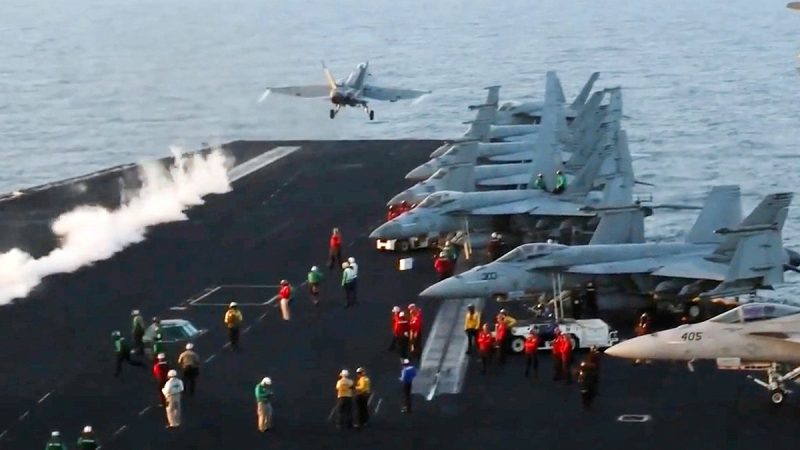President Donald Trump came back into office promising no new wars. So far, he’s kept that promise. But he’s also left much of Washington — and many of America’s allies — confused by a series of rapid, unexpected moves across the Middle East.
In just a few months, Trump has reopened backchannels with Iran, then turned around and threatened its regime with collapse. He’s kept Israel at arm’s length — skipping it on his regional tour — before signaling support once again. He lifted U.S. sanctions on Syria’s Islamist leader, a figure long treated as untouchable in Washington. And he made headlines by hosting Pakistan’s top general at the White House, even as India publicly objected.
For those watching closely, it’s been hard to pin down a clear doctrine. Critics see improvisation — sometimes even contradiction. But step back, and a pattern begins to emerge. It’s not about ideology, democracy promotion, or traditional alliances. It’s about access. Geography. Trade.
More specifically, it may be about restarting a long-stalled infrastructure project meant to bypass China — and put the United States back at the center of a strategic economic corridor stretching from India to Europe.
The project is called the India–Middle East–Europe Corridor, or IMEC. Most Americans have never heard of it. It was launched in 2023 at the G20 summit in New Delhi, as a joint initiative among the U.S., India, Saudi Arabia, the UAE and the European Union. Its goal? To build a modern infrastructure link connecting South Asia to Europe — without passing through Chinese territory or relying on Chinese capital.
IMEC’s vision is bold but simple: Indian goods would travel west via rail and ports through the Gulf, across Israel, and on to European markets. Along the way, the corridor would connect not just trade routes, but energy pipelines, digital cables, and logistics hubs. It would be the first serious alternative to China’s Belt and Road Initiative — a way for the U.S. and its partners to build influence without boots on the ground.
But before construction could begin, war broke out in Gaza.
The October 2023 Hamas attacks and Israel’s military response sent the region into crisis. Normalization talks between Saudi Arabia and Israel fell apart. The Red Sea became a warzone for shipping. And Gulf capital flows paused. The corridor — and the broader idea of using infrastructure to tie the region together — was quietly shelved.
That’s the backdrop for Trump’s current moves. Taken individually, they seem scattered. Taken together, they align with the logic of clearing obstacles to infrastructure. Trump may not be drawing maps in the Situation Room. But his instincts — for leverage, dealmaking and unpredictability — are removing the very roadblocks that halted IMEC in the first place.
His approach to Iran is a prime example. In April, backchannels were reopened on the nuclear front. In May, a Yemen truce was brokered — reducing attacks on Gulf shipping. In June, after Israeli strikes inside Iran, Trump escalated rhetorically, calling for Iran’s ‘unconditional surrender.’ That combination of engagement and pressure may sound erratic. But it mirrors the approach that cleared a diplomatic path with North Korea: soften the edges, then apply public pressure.
Meanwhile, Trump’s temporary distancing from Israel is harder to miss. He skipped it on his regional tour and avoided aligning with Prime Minister Netanyahu’s continued hard-line approach to Gaza. Instead, he praised Qatar — a U.S. military partner and quiet mediator in the Gaza talks — and signaled support for Gulf-led reconstruction plans. The message: if Israel refuses to engage in regional stabilization, it won’t control the map.
Trump also made the unexpected decision to lift U.S. sanctions on Syria’s new leader, President Ahmad al-Sharaa — a figure with a past in Islamist groups, now leading a transitional government backed by the UAE. Critics saw the move as legitimizing extremism. But in practice, it unlocked regional financing and access to transit corridors once blocked by U.S. policy.
Even the outreach to Pakistan — which angered India — fits a broader infrastructure lens. Pakistan borders Iran, influences Taliban-controlled Afghanistan, and maintains ties with Gulf militaries. Welcoming Pakistan’s military chief was less about loyalty, and more about leverage. In corridor politics, geography often trumps alliances.
None of this means Trump has a master plan. There’s no confirmed strategy memo that links these moves to IMEC. And the region remains volatile. Iran’s internal stability is far from guaranteed. The Gaza conflict could reignite. Saudi and Qatari interests don’t always align. But there’s a growing logic underneath the diplomacy: de-escalate just enough conflict to make capital flow again — and make corridors investable.
That logic may not be ideologically pure. It certainly isn’t about spreading democracy. But it reflects a real shift in U.S. foreign policy. Call it infrastructure-first geopolitics — where trade routes, ports and pipelines matter more than treaties and summits.
To be clear, the United States isn’t the only player thinking this way. China’s Belt and Road Initiative has been advancing the same model for over a decade. Turkey, Iran and Russia are also exploring new logistics and energy corridors. But what sets IMEC apart — and what makes Trump’s recent moves notable — is that it offers an opening for the U.S. to compete without large-scale military deployments or decades-long aid packages.
Even the outreach to Pakistan — which angered India — fits a broader infrastructure lens. Pakistan borders Iran, influences Taliban-controlled Afghanistan, and maintains ties with Gulf militaries.
For all his unpredictability, Trump has always had a sense for economic leverage. That may be what we’re seeing here: less a doctrine than a direction. Less about grand visions, and more about unlocking chokepoints.
There’s no guarantee it will work. The region could turn on a dime. And the corridor could remain, as it is now, a partially built concept waiting on political will. But Trump’s moves suggest he’s trying to build the conditions for it to restart — not by talking about peace, but by making peace a condition for investment.
In a region long shaped by wars over ideology and territory, that may be its own kind of strategy.

